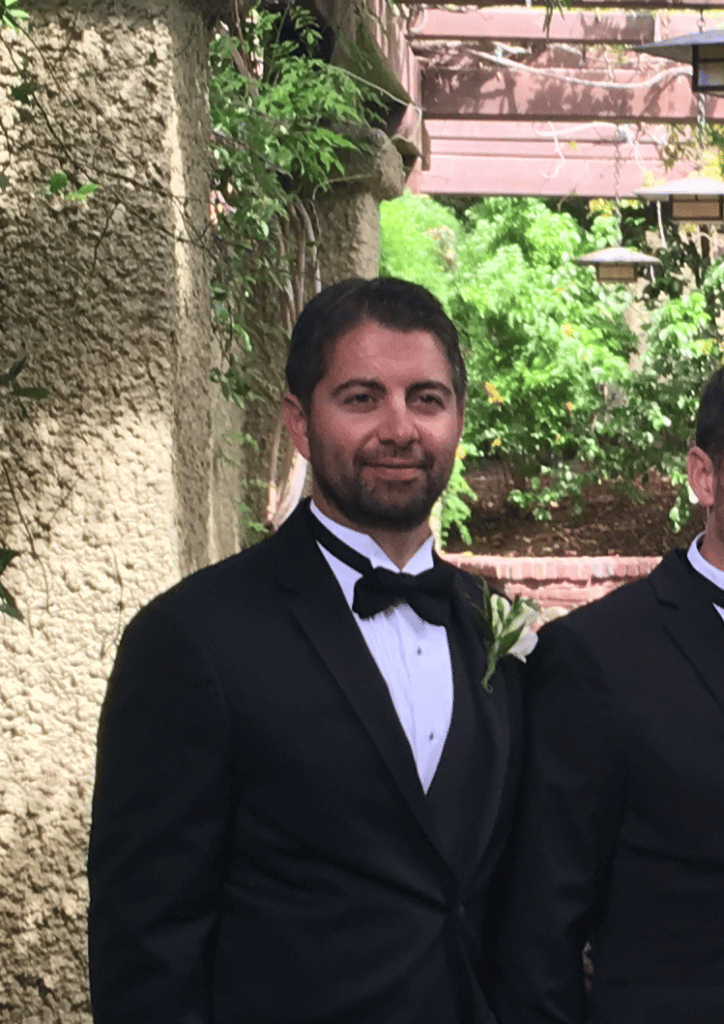
Background
Dr. Matthew Boland is a licensed clinical psychologist. He conducts structured assessment and psychotherapy with medical patients and mental health consumers in Reno, Nevada. He also conducts original research on posttraumatic stress and emotional regulation in clinical disorders, and he teaches university courses on related topics. Dr. Boland provides medical review for Healthline.com network sites and is featured in informational videos on topics in mental health as “Dr. Matt B.” He completed a PhD at the University of Nevada and a clinical research fellowship at the University of California, San Diego School of Medicine. In his spare time, he can be found skiing and hiking around the Sierras or traveling to favorite destinations.
Interests and Specialty Areas
- Emotion Regulation and Stress and coping
- Emotional coping in psychological disorders
- Cognitive-behavioral processes
- Posttraumatic stress disorder
- including the co-occurence of PTSD with substance use disorders and major depression
- Anxiety and anxiety disorders
- The effects of psychological difficulties on medical conditions and vice versa
- Psychological difficulties in legal cases
- Grief and Prolonged grief
- Positive emotions and emotional enhancement
- effects of positive emotion on self-concept and behavior
[SPACING]

[SPACE]

Clinical and Forensic Services
- Forensic Assessment (civil and criminal cases)
- Behavioral Medicine assessment
- Bariatric pre- and post-operative evaluations
- Integrated assessment for chronic pain,
- Other structured assessment
- Cognitive and personality assessment
- Pre-employment and Fitness for Duty (FFD)
- Evidence-based treatments
- Cognitive and cognitive-behavioral therapy
- Cognitive processing therapy (CPT) and prolonged exposure (PE) for PTSD
- Behavioral activation for depression and grief
- Exposure therapies for anxiety
- Positive emotional development
- Case formulation approach to tailor these approaches to individuals’ unique needs
Affiliations and Positions
Founder and CEO, bridge dissemination. Therapist resources and research-based information for mental health professionals.
Lecturer, University of San Diego. Department of Psychological Sciences.
Adjunct Faculty and Instructor, University of Nevada, Reno, Department of Psychology.
Community Faculty and Psychiatric Residency Supervisor, University of Nevada School of Medicine, Psychiatry and Behavioral Sciences
Healthline.com Network, Medical Review Team:
Senior Associate, Licensed Psychologist, Health Psychology Associates.
Founder and Forensic Psychologist, Empirical Experts LLC: [Website in production]
Postdoctoral Alumni, PEARL Lab, University of California, San Diego School of Medicine, Department of Psychiatry,

Selected Publications
Boland, M., Papa, A., Oliver, E.*, & Del Carlo, R.E.* (2019). Depressive suppression: Effects of emotion suppression on multiple emotions for depressed versus nondepressed individuals. Cognitive Therapy and Research, 43(5), 910-925. doi: 10.1007/s10608-019-10002-5.
Boland, M. & Papa, A., & Del Carlo, R.E.* (2019). Trait negative affect moderates the effects of expressive versus experiential emotion suppression. Personality and Individual Differences, 138, 4-10. doi: 10.1016/j.paid.2018.08.021.
Boland, M., Rielage, J., & Hoyt, T. (2018). The power of negative mood in predicting posttraumatic stress and alcohol abuse comorbidity. Psychological Trauma: Theory, Research, Practice, and Policy, 10(5), 572-575. doi: 10.1037/tra0000322.
Boland, M. & Papa, A., & Oliver, E.* (unpublished dissertation). The effects of emotion suppression across depression and pathological worry.
Boland, M., Shallcross, A.J., & Mauss, I.B. (unpublished thesis). Bottling it up: Suppression of negative emotion in the development of anxiety.
Bomyea, J., Sweet, A., Davey, D.K., Boland, M., Martin P. Paulus, M.P., Stein, M.B., & Taylor, C.T. (in press). Randomized Controlled Trial of Computerized Approach/Avoidance Training in Social Anxiety Disorder: Neural and Symptom Outcomes. Journal of Affective Disorders.
Jervis, L. L., Boland, M., & Fickenscher, A. (2010). American Indian family caregivers’ experiences with helping elders. Journal of Cross-Cultural Gerontology, 25(4), 355-369. doi: 10.1007/s10823-010-9131-9.
O’Donohue, W. T. & Boland, M. (2012). Beyond the Rube Goldberg Model of clinical training: Efficient training of core competencies. Training and Education in Professional Psychology, 6(3), 174-186. doi: 10.1037/a0029787.
Papa, A., Boland, M., & Sewell, M. T. (2012). Emotion regulation and CBT. In Cognitive Behavior Therapy: Core Principles for Practice. Hoboken, NJ: Wiley.
Shallcross, A. J., Troy, A. S., Boland, M., & Mauss, I. B. (2010). Let it be: Accepting negative emotional experiences predicts decreased negative affect and depressive symptoms. Behaviour Research and Therapy, 48(9), 921-929. doi: 10.1016/j.brat.2010.05.025.
Manuscripts in Preparation
Boland, M., Tsai, T., Taylor, C. T., & Stein, M. B. (in preparation). Anhedonia predicts attentional bias toward and away from disgust, but not happiness, using a novel reliable computational approach to dot probe task scores.
Boland, M., Taylor, C. T., Smith, T. & Stein, M. B. (in preparation). Degree of attentional avoidance for positive and negative emotion in clinical participants depends on the degree of safety behaviors used in live conversation.
Boland, M., Campbell-Sills, L., Stein, M. B., Xiaoying, S., Taylor, C. T., & Jain, S. (in preparation). Negative mood and cognition and proposed symptom subsets predict comorbid substance use in posttraumatic stress concurrently and over time in Army soldiers.
Del Carlo, R. E., Boland, M., Papa, A., Robledo, G,* (in preparation). Physiological and emotional effects of cognitive reappraisal and emotional acceptance in response to high and low arousal emotion inductions.
